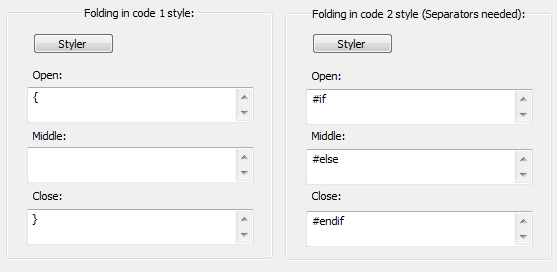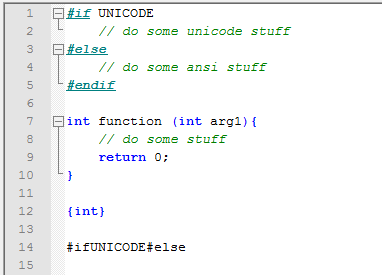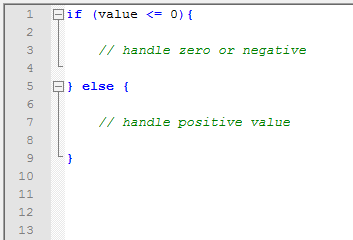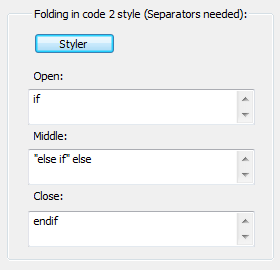UDL > Folding in code
Folding in code is quite different in UDL 2.1. Instead of two keyword sets (open and close), now we have three keyword sets (open, middle and close). Also, there are two Folding in code groups: one for forward (style1) and one for backward (style2) search.
Example 1
This is a typical C++ folding definition.
Curly braces represent folding points in the code and preprocessor is also supported (for this demo not all statements were defined)

There are two important things here.
As you can see both Folding 1 and Folding 2 create folding points, but they work differently.
- Folding 1 (the curly braces) is detected using forward search. It means these keywords can be “glued” to some other keyword. In this case opening curly brace stands next to closing round brace, and in line 12 around word
int - Folding 2 (preprocessor stuff) works when surrounded by white space, but not when glued to word
UNICODE, as demonstrated in line 14

Note: forward and backward search concept is explained in more detail in the UDL Parser page.
You should read that part if you haven’t already.
Example 2
UDL 2.1 will automatically create middle folding point if open folding point is followed by a close folding point on the same line.

Example 3
Use of multi-part keywords is supported in Folder in code 2, as you can see in this example.

This page of the User Manual is derived and edited from Ivan Radić's udl-documentation, which he has maintained for Notepad++'s UDL 2.1 since 2015, under the CC BY 4.0 license.